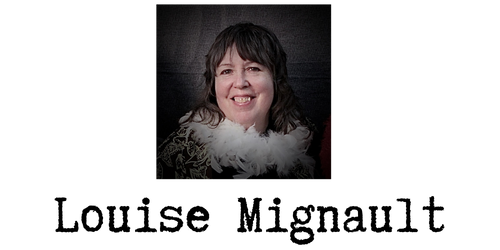Or where electricity really comes from and more…
In a recent set of “campaign” videos like this one (@38 minute mark) Pierre Poilievre whips up his audience’s enthusiasm by commenting on ordinary people who are, in his estimation, “extraordinary”.
Published in The Seeker January 09, 2024
Here are some highlights:
- “The electrician who captures lightning from the sky and runs it through a copper wire, to illuminate this room and light up the world…”
- “The farmer who masters the sciences of sky and soil (or soil and storm) to bring food from his field to your fork”
- “The waitress who balances 12 plates on a tray and serves 12 tough customers at once, works a double shift and comes home with enough energy to teach her kids math and balances her budget on a minimum wage salary”
- “The policewoman who dodges bullets by day and reads bedtime stories to her children at night”
Well, Mr. Poilievre, I’ve got news for you: that’s not how we make electricity. The successful farmer is likely well-educated. The waitress sounds like a female Hercules (12 plates??!!). Working double shifts is not balancing a budget. It’s called poverty. She could use a liveable minimum wage instead of flattery. And where in Canada do you find a policewoman who regularly dodges bullets? (I don’t want to live there & I’m glad the Libs are keeping gun control laws).
When he’s not channelling Victor Frankenstein or Nikola Tesla, Mr. Poilievre actively promotes the dumbing down of citizens by making ignorance acceptable. He says: “Speaking of experts, do you know, we’re often told that there are these brainy people who have a higher standard of virtue than the unwashed masses.”
“These brainy people”? “A higher standard of virtue”? What the hell does that mean?
The leader of the Canadian Conservative Party wants you to believe that he too is part of the “unwashed masses” crowd; that he too is NOT among the “brainy people” – even though he is a multi-millionaire career politician. If he is not an expert, if he is not brainy – do you want him as the leader of your country? And if so, why?
His overall message is frightening because he is advocating for a low degree of capability that will decrease your standard of living and possibly your ability to live at all. In denigrating the expert, he is telling you to stay uninformed and uneducated. He is saying that this naïve state is somehow good for you. It’s not good for you. It is, however, good for him. It means you will follow him because you like what you think he says and you will not check if he is accurate or even telling the truth.
His attack on expertise comes at a time when the world must have experts to function. Our societies run on complex technologies. Humanity has evolved through education and expertise. We need people who are experts to feed the planet, build our bridges and homes and businesses, take care of our bodies, teach our children, inform us and educate us, protect our rights and govern our countries. We also need governments that understand that governing is NOT a business but is instead a community exercise geared to improving the lives of Canadians.
Expertise is not limited to a Ph.D. It also comes with hands-on training and expert knowledge of how something works. And whether you get it from school education or job experience – if you are good at something; if you are an expert – you are “brainy”.
Many people don’t understand that Poilievre is talking down to them. He assumes that they are NOT experts. He accepts – without further reflection – that his audience IS part of the “unwashed masses”. And he is betting that they will happily ignore this – because he spent time telling them they are extraordinary by using examples that don’t make sense.
Mr. Poilievre continues: “… a higher standard of virtue than the unwashed masses. So, they have to decide for all of you and all of us because they just know better. All of us, well, we should just do what we’re told. They should decide what we think and say and what happens with our money.”
To a certain extent, Poilievre is describing all governments. We elect our representatives to run a country the way we think will be best for us. From there they decide how to run things for the majority. They make the laws, they decide taxation, they build infrastructure and they interact with other countries of the world etc. By oversimplifying complex issues and attacking the concept of expertise, Poilievre undermines the foundations of a society that relies on knowledgeable individuals to address its challenges.
Despite saying that the government is dictating to you, I have yet to see any Canadian government EVER tell its citizens what to think, what to say and how to spend their money. Poilievre is describing a level of repression that we have NEVER seen in Canada and hopefully never will. His assertion serves to create unnecessary fear and contributes to the erosion of trust in political speech.
Poilievre’s campaign approach is to use the divisive tactics seen in other political landscapes like the ultra-right wing in the US. Importing such tactics into Canadian politics sabotages our country’s long-standing commitment to informed, respectful debate. We must evaluate the messages presented by political figures. It is critical to understand the importance of expertise and informed decision-making in shaping our collective future.
Photo by Pixabay

